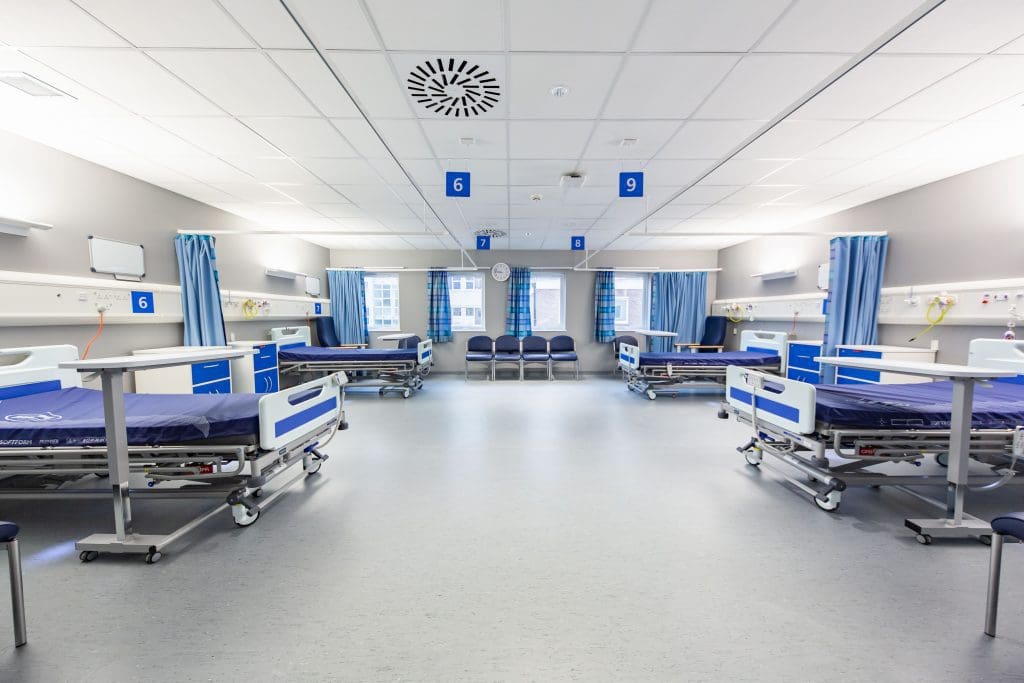The healthcare sector is continuously evolving to meet the growing demands of diverse populations and ever-changing medical landscapes. As a result, flexible and adaptable healthcare facilities are becoming increasingly important. Traditional construction methods can be time-consuming and costly, presenting challenges for the health sector.
In this blog, we explore how modular construction offers an efficient and adaptable solution for the healthcare industry.
Understanding Modular Construction for Healthcare Applications
Modular construction is a method that involves the offsite manufacture of modules, which are then transported to the construction site for assembly.
This approach differs from traditional construction, where all work is performed on-site. Modular healthcare facilities typically feature steel, wood, or concrete as primary materials, providing durability and strength. Compared to traditional construction methods, modular construction offers several advantages, such as reduced construction time and increased cost-effectiveness.
Benefits of Modular Solutions in the Health Sector
Time savings and accelerated project completion
Modular construction allows for faster project completion compared to traditional methods, enabling healthcare providers to occupy their facilities sooner. This is particularly important in times of crisis, such as during a pandemic or natural disaster when rapid response is crucial.
Cost-effectiveness and budget control
Offsite manufacturing of modules can lead to more accurate cost estimates and controlled budgets. Furthermore, modular construction minimises disruptions to existing healthcare facilities, reducing the financial impact on operations.
Flexibility and customisation options
Modular healthcare buildings offer a high degree of design flexibility, allowing providers to tailor spaces to their specific needs. This adaptability is particularly useful in the healthcare sector, where facility requirements may change over time.
Enhanced quality control and hygiene standards
Offsite manufacturing of modules allows for better quality control and consistency. Additionally, the controlled environment reduces the risk of contamination, ensuring a higher level of hygiene for healthcare facilities.
Sustainability and eco-friendliness
Modular construction produces less waste and has a smaller environmental impact compared to traditional methods. This approach aligns with the increasing focus on sustainability and environmentally friendly practices within the healthcare sector.
Popular Healthcare Applications of Modular Construction
Hospitals and emergency medical facilities
Modular construction can be used to quickly deploy emergency temporary medical centres or expand existing hospitals, providing essential care during times of increased demand.
Clinics and outpatient centres
Modular clinics can be tailored to specific medical specialities, offering flexible and efficient outpatient care environments.
Diagnostic and imaging centres
Modular construction enables the creation of state-of-the-art diagnostic and imaging facilities, ensuring high-quality patient care.
Rehabilitation and long-term care facilities
Modular buildings can be designed to accommodate the unique needs of rehabilitation and long-term care patients, providing comfortable and functional living spaces.
Mobile and temporary medical units
Modular construction allows for the creation of mobile and temporary medical units that can be easily relocated to meet changing healthcare needs.
As the healthcare sector continues to evolve, modular construction will become increasingly important for meeting the needs of diverse populations and providing high-quality patient care. Therefore, we call on healthcare providers to consider the advantages of modular construction when planning their next construction project to create efficient and adaptable facilities that can meet the changing demands of the healthcare landscape.
Contact our team today to find out more.

